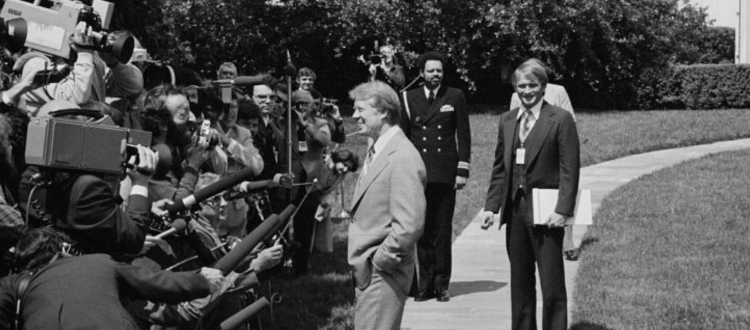Jimmy Carter’s Public Education Legacy

The funeral services for Jimmy Carter, the 39th president of the United States, will take place at 10 a.m. ET Thursday, Jan. 9, at the Washington National Cathedral. Jan. 9 has been declared a national day of mourning, so federal offices will be closed, and the U.S. Postal Service will not deliver mail. Many states are planning a national moment of silence at 10 a.m. ET when the funeral service begins.
As the nation mourns the former president, and many remember the legacy of President Carter, ATPE would like to highlight his contributions to public education and his lifelong dedication to improving schools and supporting educators.
In 1979, Carter signed a historic bill into law that established the U.S. Department of Education, marking a significant step in the federal government’s role in supporting and improving public education. This legislation created a dedicated cabinet-level department to oversee educational policies and programs, with Shirley Hufstedler serving as the first secretary of education, a trailblazer in advancing education policy at the national level. Prior to the creation of the department, education was wrapped into the Department of Health, Education, and Welfare, established in 1953.
“Education is our most important national investment,” Carter said after the signing of the legislation. “Every citizen has a vital, personal stake in this investment. Our ability to advance both economically and technologically, our country’s entire intellectual and cultural life depend on the success of our great educational enterprise.”
However, Carter had been involved in education long before the presidency. He served on the Sumter County Board of Education in Georgia. When he was elected to the Georgia state senate in 1962, he was a part of the education committee. As governor of Georgia, he sought education reforms in the state aimed at moving away from segregation. LIFE magazine recalls a famous statement he made during a speech that was highlighted in a 1971 issue:
“I say to you quite frankly, the time for discrimination is over. No poor, rural, weak or black person should ever have to bear the additional burden of being deprived of the opportunity of an education, a job or simple justice.”
After the funeral service, the motorcade will transport Carter to Joint Base Andrews at 11:15 a.m. and board Special Air Mission 39 at 11:45 p.m. Carter and family will then arrive at Lawson Army Airfield in Fort Moore, Georgia, where they will then travel to Maranatha Baptist Church in Plains, Georgia, for a private funeral service that afternoon. Then, Carter and his family will travel to their residence for a private interment, according to the Associated Press.
Flags will remain at half-mast until Jan. 28, which is 30 days after Carter’s death. Thirty days is the longest time flags remain at half-mast, an honor reserved for current and former presidents.